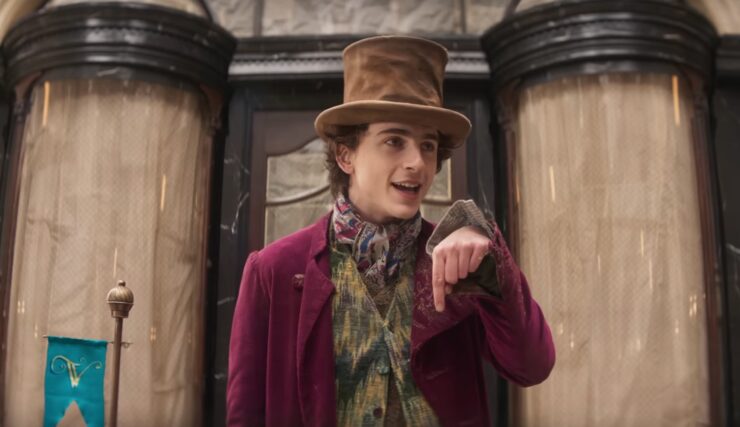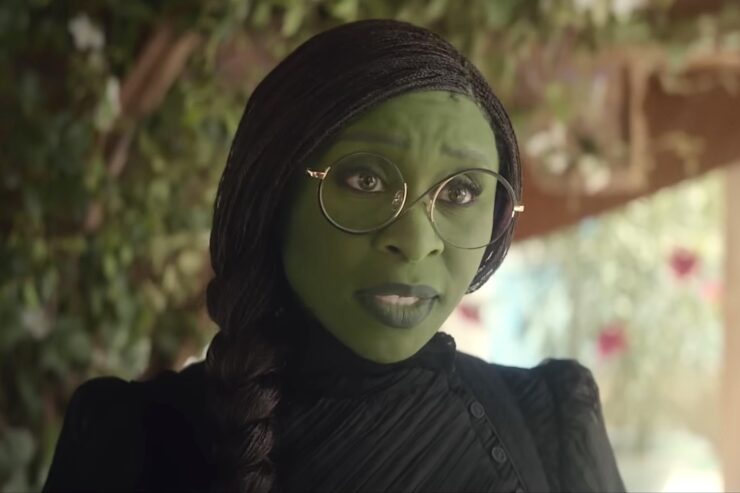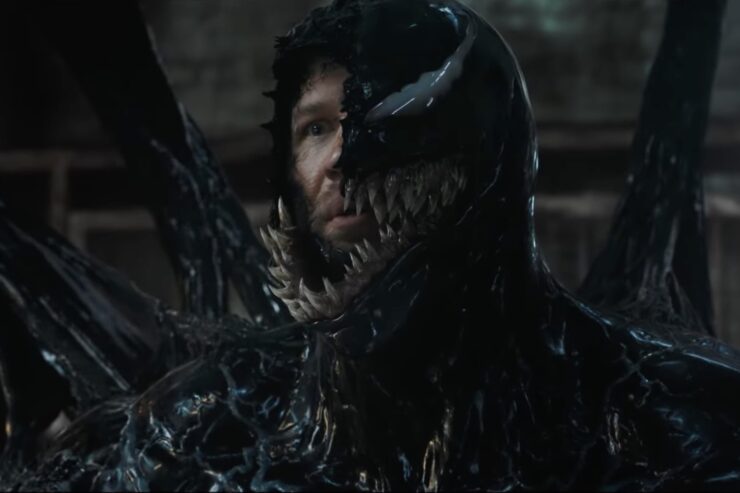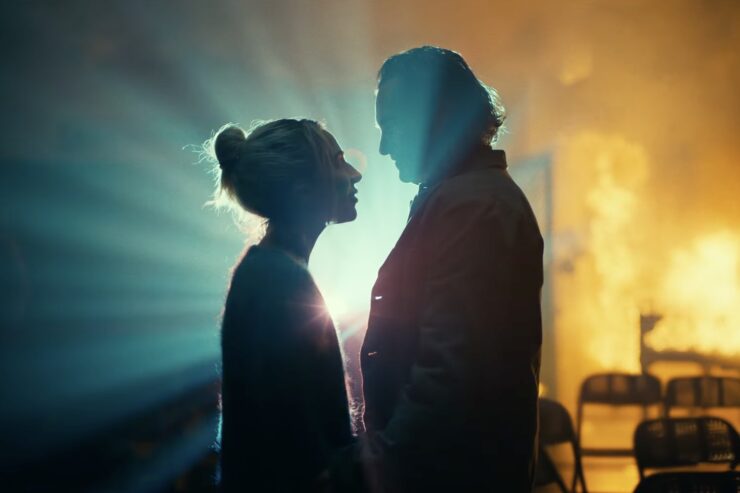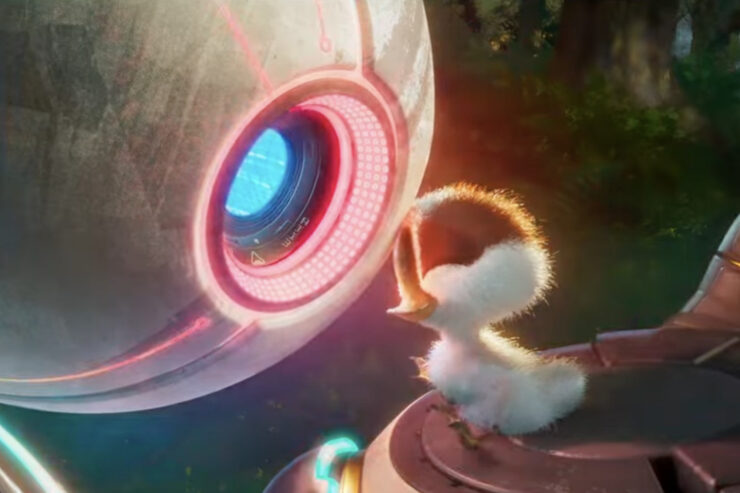If you’re intent on getting into the prequel game, handing your story off to Paul King seems like a sure thing. The man has charmed audiences everywhere with his Paddington films, and is poised to litter the world with stories that are sweet, meaningful, and thankfully incredibly silly.
There’s just one problem. At no point should you apply that sensibility to the character of Willy Wonka.
As a film, Wonka is trying to have it several ways: It wants to be a classic musical. It want to be a prequel. It wants to be a Paul King film. It wants to be a heartwarming tale of those in need for once triumphing over avarice. It probably wants to start a franchise, too. It manages none of these successfully because the movie’s focus and worldbuilding are all over the place, and that’s only the beginning of its troubles.
Willy Wonka (Timothée Chalamet) has traveled the world for seven years after the death of his mother, and has finally come to the city where the Galeries Gourmet—the epicenter of the world’s greatest chocolate companies—sell sweets to the masses. Willy means to do the same but Msrs. Slugworth (Paterson Joseph), Fickelgruber (Matthew Baynton), and Prodnose (Matt Lucas) head up a Chocolate Cartel that involves both the police and the clergy to run any hopefuls out of town. Willy stays the night at Mrs. Scrubitt’s (Olivia Colman), but he misses the fine print of his stay, and winds up an indentured laundry servant along with the orphan Noodle (Calah Lane), Abacus Crunch (Jim Carter), Piper Benz (Natasha Rothwell), Larry Chucklesworth (Rich Fulcher), and Lottie Bell (Rakhee Thakrar). But Willy isn’t easily daunted and quickly comes up with a plan to sneak out and sell his chocolate in the hopes of buying everyone’s freedom.
The indentured servitude plot line is meant to avoid an icky little fact about the Wonka name: The character is, when all is said and done, a very good businessman. But making a movie where one guy wins at chocolate-selling over all the other guys who are good at chocolate-selling does not a beloved protagonist make. In any case, Wonka is aiming to be about something deeper than succeeding at business without really trying—it wants to be about family. Noodle doesn’t have one and Willy is hoping that if he succeeds in sharing chocolate with the world, he’ll see his dearly departed mother again (because she promised she’d be with him when he achieved that goal, you see).
The other thing that Willy Wonka is—being a truly unique inventor—is completely scrapped in this tale, by the way. This version of Wonka wanted to be a magician before he decided to become a chocolatier, and so his ability to make fantastic chocolate is no longer the purview of his actual imagination. (You know, that famous song from the 1971 Gene Wilder film? The core of the ethos, you might say?) Rather, Wonka’s delights are merely conveyed by discovery and magic. Not magician-magic mind you, though he does do a few sleight-of-hand tricks in the film, but actual magic of some sort that is never adequately explained. For example, Wonka seems to have an endless supply of the ingredients he needs to make his chocolates… except for one point when he doesn’t, necessitating a trip to the zoo for giraffe milk. The rest of the time, he can pull whatever he wants out of thin air, in any amount or volume. It trims the stakes right off of the story because there’s no work involved in anything Wonka creates—he only has to snap his fingers and make things so.
The effect turns the character into an entirely different beloved children’s hero. That is to say, Wonka’s entire shtick throughout the film is stolen wholesale from Mary Poppins: He has a bottomless hat full of things; his antics cause people to fly and his presence makes the world markedly better and more magical; he’s trying to help a little girl find her place in the world. It’s a shame that King and his cowriter Simon Farnaby either didn’t notice what they were cribbing, or didn’t make more of an effort on that front, because one thing that the movie should have stolen from Poppins was the vantage point—if this was the story they meant to tell, it should have been focused entirely on Noodle from the start.
There are moments where the film comes together for a spell, and that is entirely the work of Neil Hannon’s musical numbers. The songs are largely cute, snappy, and well-arranged, some of them even harkening back to movie musicals of old. Numbers “Scrub Scrub” and the villainous “Sweet Tooth” give the film a few brief interludes of pure fun. The one place where the film seems to become the movie it meant to be is during a duet between Wonka and Noodle at the zoo, where she sings about not wanting to believe things might get better, while he nonsense rhymes her name in song to cheer her up. It’s aggravating that the film doesn’t focus on Calah Lane nearly enough when she is the person who elevates the whole exercise into something far more poignant, and sometimes even manages to drag her costar along with her.
Which brings us to the most awkward problem Wonka has: These days, movies often need a big name attached to get made at all, and no one is bigger at the moment than Timothée Chalamet. And painful as it is to say, he doesn’t have the chops required for the character. He could have tried something entirely different, put his own unique stamp on the role, but there’s simply not enough oddness in the man to make for a decent meal. Every moment where Wonka gets kooky you can see him acting, and it’s enough to throw you out of the action entirely. The only moments when he seems comfortable in the character is when he’s acting opposite Lane, making the choice not to center her character even more of an insult. But even then—he’s not Willy Wonka.
Sheer bad taste brings the film even lower at several points. There is a fat joke that runs the entire length of the film, where Keegan-Michael Key’s chief of police grows in size as his chocolate habit is exploited by the Chocolate Cartel for comedic effect. The movie comes by the plot line honestly, of course; author Roald Dahl was known for rampant fatphobia in his books, among other awful things. But the fact that Wonka felt the need to center such a gag is just as painful as listening to children and their parents cackling about it in the theater.
And, of course, this throws light on another unfortunate choice in the storytelling; Chocolate-eating is largely framed as an addiction throughout the film. The purveyors are a “cartel,” they’ve ensnared the chief of police and the clergy by bribing them with chocolate, and there’s a vault of chocolate beneath the city that the cartel keep sequestered as a means of paying off anyone who tries to prevent their dealings. The movie doesn’t seem to realize that this choice actively makes chocolate into a bad thing. (Which could have been interesting if they were engaging with that! They’re not.) When Willy gives Noodle her first taste of chocolate, she tells him that she wishes he hadn’t because now she’ll be sad for all the days she doesn’t have it. The narrative does have a great big button to wrap up this issue: chocolate isn’t about the confection itself, but about our bonds with others. Which feels entirely trite as an answer to the rampant abuse and dependence we’ve seen throughout the film, but sure.
And this is before really getting into the prequel angle, which the film is adamant about pressing despite the fact that it doesn’t make one lick of sense. We seem to have entered into an era where folks can “prequelize” a story with a few key ties just for the purpose of playing on nostalgia, and nothing else. There’s no part of this film that suggests it could lead into Willy Wonka and the Chocolate Factory; the setting is wrong, the destruction of Wonka’s competition makes idea theft a non-issue, the Oompa-Loompa element has been reimagined as a species of Uber-Brit for no discernible reason. But there are sound cues aplenty and the flagrant use of “Pure Imagination”; there’s Wonka’s inability to read the fine print as a reason behind his own tricky contract; there’s a deadly chocolate water system; there’s also an absolutely enraging origin for the Golden Tickets which manages to suggest that the entire reason that Wonka will later send out those tickets is to find more people to share with. Because that’s definitely the story we all remember.
Families seem to be enjoying Wonka, and more’s the pity. I suppose this is what the future of family films will look like for the time being. But it seems to me that we should all be more wary of a future where we’ve promised children that nothing will ever be worse than some ugly fine print, fixed by a man with a magic top hat. The world is infinitely more strange than all that… as Willy Wonka well knows.










